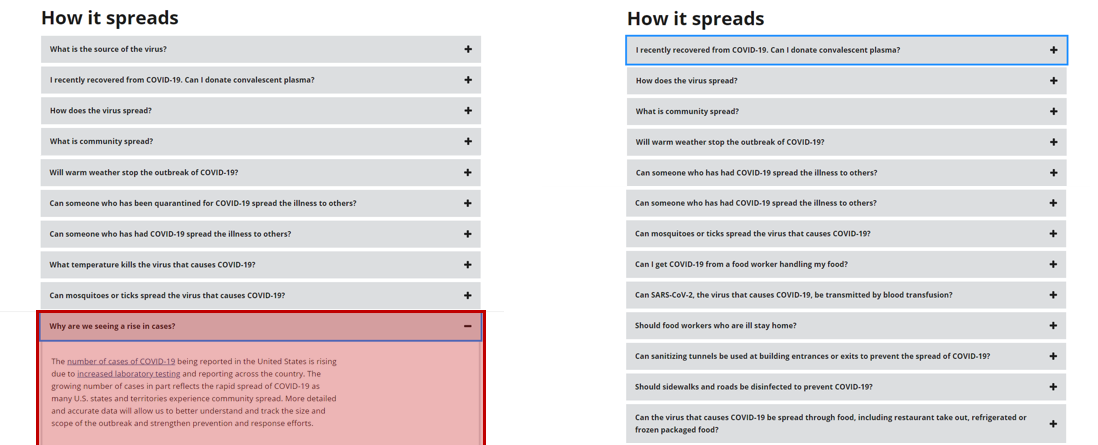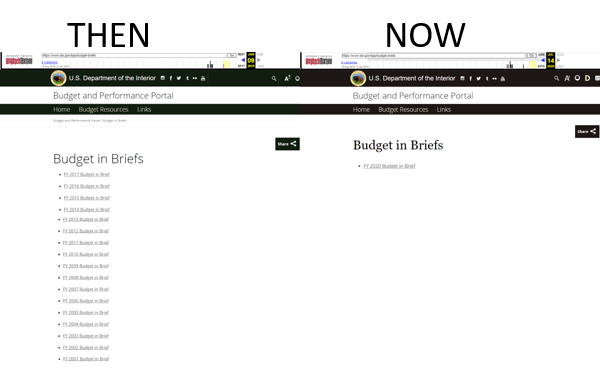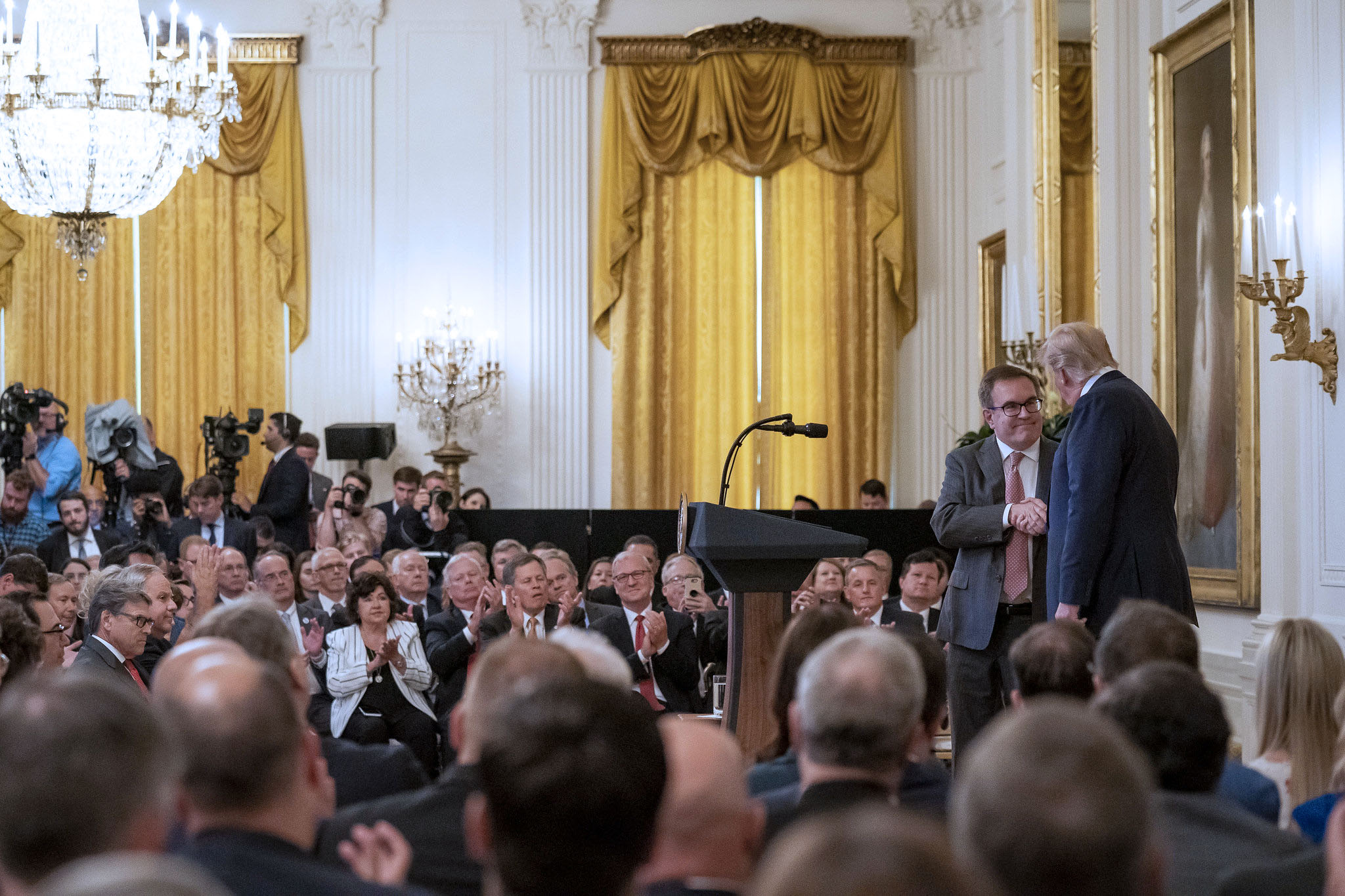Change of the Week: Let’s just not mention the rising number of COVID-19 cases…
This week’s change is from earlier this summer and features a removal from the Coronavirus.gov “How It Spreads” FAQ webpage. What happened? The question and answer to “Why are we seeing a rise in cases?” was deleted from the coronavirus.gov webpage for frequently asked questions about how the virus spreads.






